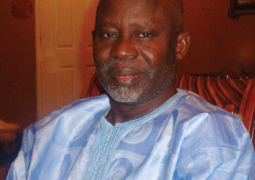Most
African countries lack the resources needed to process the growing amount of
solid waste it produced. Nearly 20 of the world’s 50 biggest dumpsites are on
the continent, according to Waste Atlas, according to researchers.
With
this problems compounded by other emerging needs, certainly Africa expects to
suffer the most from rising temperatures. And it is least equipped to fight
back.
How
the continent will tackle the solid waste produced by its more than inhabitants,
many of them eager consumers in growing economies, is a major question for
environmentalists and governments alike.
The
recent call by the National Assembly Member for Banjul North for the relocation
or proper management of the Mile 2 dumpsite situated in the outskirts of the
city of Banjul is timely.
During
a recent visit to the site, what the lawmaker experienced on arrival leaves
much to be desired. The site is not only posing serious threat people’s health
but also the environment. It is common knowledge that much of the waste in
low-income countries, about 90 percent, is openly dumped or burned. And that
contributes to worsening air quality while the poor are most affected.
Just
imagine the health hazards it poses to the patients at the Sanatorium as well
as inmates at the State Central Prison.
In
as much as they are serving their sentences they also deserve to breathe fresh
air just like any human.
We
should always bear in mind that burning of waste is a key contributor to
climate change. Safe, sustainable solid waste management could be an engine for
economic growth. Thus, it is high time government and Banjul City Council put
in place sound mechanisms to embrace recycling. This would create employment
for the youth, while at the same time addressing social and environmental
issues. We therefore call on the BCC and concerned authorities to act fast to
address the plights of Banjulians especially those already being affected.
“Waste
Choices is working with so many waste management companies in Australia to get
proper management of hazardous waste.”
Joel



